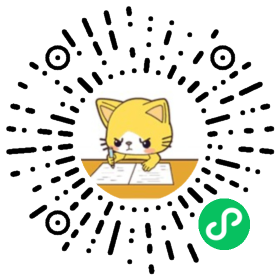【单选题】
幼儿文学作家要充分考虑幼儿的审美特点,创造出符合他们()的文学作品。 ___
A. 审美情趣
B. 感受情绪
C. 幻想特点
D. 自由无拘
查看试卷,进入试卷练习
微信扫一扫,开始刷题

相关试题
【单选题】
泛灵观念是指把万事万物()自己的世界,认为它们有生命有意识。___
A. 相反于
B. 区别于
C. 等同于
D. 接近于
【单选题】
儿歌是一种适合幼儿听赏的诵唱的(),是幼儿最早接触的文学样式。___
【单选题】
儿歌传统艺术形式主要有()种类型。 ___
【单选题】
儿歌创编可以分为仿编、改编和()。 ___
【单选题】
幼儿诗是契合幼儿的()且适合幼儿阅读欣赏,并被他们所乐于接受的诗歌。 ___
A. 跳跃创新
B. 思维创新
C. 接受能力
D. 心理特点
【单选题】
诗是抒情的艺术,()是诗的突出特征。___
A. 抒情述志
B. 述志抒怀
C. 咏物言志
D. 意境深邃
【单选题】
幼儿诗普遍具有()的音韵和鲜明的节奏,多用叠词叠韵,构成悦耳动听,朗朗上口的音韵。___
【单选题】
童话的(),即具有为儿童编撰的、幻想的、符合儿童的心理和欣赏能力的特征。 ___
A. 概念
B. 基本特征
C. 定义
D. 判断
【单选题】
()是一种适合儿童欣赏和接受的、具有特殊幻想性质的叙事文学体式。 ___
【单选题】
()由劳动人民创作,经世代口耳相传,带有明显的民族或地方特色。___
A. 民间童话
B. 创作童话
C. 文学童话
D. 知识童话
【单选题】
()的主人翁一般是普通人,但这些普通人却有着离奇有趣的经历和遭遇。___
A. 超人体童话
B. 拟人体童话
C. 常人体童话
D. 凡人体童话
【单选题】
()又称科学童话,是以童话的形式向儿童传授科学知识的童话。___
A. 民间童话
B. 故事童话
C. 文学童话
D. 知识童话
【单选题】
()是童话的基本特征,是童话的手段,也是童话目的。 ___
【单选题】
幻想并不等同于胡编乱造,它是现实生活在人们头脑中的一种()。___
A. 特殊反映
B. 情感体验
C. 视觉享受
D. 意境转换
【单选题】
童话的主要表现手法()是借助某一具体事物的形象,表现抽象的概念、思想和情感等。___
【单选题】
童话的叙述方式()在童话中一些相同或者相似的情节反复出现、层层递进,最后到达高潮。 ___
A. 梦幻式
B. 反复式
C. 对照式
D. 误会式
【单选题】
纵观安徒生的童话创作历程()他创作的童话充满着绚丽的幻想和乐观主义精神,很好地将现实主义和浪漫主义结合起来。___
【单选题】
()中国现代作家、教育家、文学出版家和社会活动家,一生致力于中国教育事业的研究和文学的创作,有“优秀的语言艺术家”之称。___
A. 张天翼
B. 郑渊洁
C. 叶圣陶
D. 郑振铎
【单选题】
幼儿教师在改编童话时主要注意的事项有篇幅改短、()、语言趋于幼儿化。___
A. 人物减少
B. 寓意变浅
C. 语言简洁
D. 主题变浅
【单选题】
()是指符合幼儿理解能力、适合幼儿阅读欣赏的故事。___
A. 幼儿戏剧
B. 幼儿童话
C. 幼儿儿歌
D. 幼儿故事
【单选题】
狭义的幼儿故事特质取材于()、内容侧重写实且适合幼儿阅读欣赏的故事。 ___
A. 现实生活
B. 幼儿生活
C. 家庭生活
D. 日常生活
【单选题】
幼儿故事的特征有现实性、___、讲述性。
A. 幼儿性
B. 故事性
C. 虚幻性
D. 真实性
【单选题】
从幼儿故事的创作过程来看,可以分类为___、改编故事、创作故事
A. 民间故事
B. 图画故事
C. 文字故事
D. 经典故事
【单选题】
从幼儿故事的内容来看,可以分类为___、历史故事、动物故事、民间故事、知识故事等。
A. 生活故事
B. 图画故事
C. 文字故事
D. 经典故事
【单选题】
幼儿教师在日常的教学活动中所选用的幼儿故事的内容主要有三种:一是真人真事,二是___,三是改编的故事
A. 创作的故事
B. 幻想的故事
C. 虚构的故事
D. 经典的故事
【单选题】
___是以幼儿为主要接受对象的一种特殊的文学样式,用图画与 文字共同叙述一个完整的故事。它的基本特点是以图画为主、文字为辅,或者全部用图画来表现故事。
A. 幼儿图画书
B. 幼儿故事书
C. 民间故事书
D. 幼儿童话书
【单选题】
图书<蚂蚁和西瓜>属于___。
A. 系列图画书
B. 多幅图画书
C. 单色图画书
D. 彩色图画书
【单选题】
图书<我想去看海>属于___。
A. 系列图画书
B. 多幅图画书
C. 单色图画书
D. 彩色图画书
【单选题】
图书<好饿的小白熊>属于___。
A. 系列图画书
B. 多幅图画书
C. 单色图画书
D. 彩色图画书
【单选题】
幼儿图画书的分类按故事形式分有文图画书和___。
A. 有文图画书
B. 单幅图画书
C. 系列图画书
D. 无文图画书
【单选题】
___是完全用图画来表现内容的形式。
A. 彩色图画书
B. 单幅图画书
C. 系列图画书
D. 无文图画书
【单选题】
图画为主文字为辅、图文并茂是___。
A. 有文图画书
B. 单幅图画书
C. 系列图画书
D. 无文图画书
【单选题】
___幼儿故事以写实为主,是社会生活真实的反映,是幼儿故事区别于童话的重要标志。
A. 实在性
B. 幻想性
C. 现实性
D. 可行性
【单选题】
文 × 图 = ___.
A. 图文书
B. 图画书
C. 故事书
D. 美术书
【单选题】
拿到一本图画书,幼儿首先看到的是___。
A. 目录
B. 正文
C. 封面
D. 结尾 4
【单选题】
幼儿散文的欣赏对象主要是 ___岁的幼儿.
A. 2-4
B. 3-6
C. 3-12
D. 4-6
【单选题】
优秀的儿童散文《雨》作者是___.
A. 冰心
B. 刘半农
C. 张秋生
D. 郭风
【单选题】
___指以抒发情感为主,托物言志的散文.
A. 抒情散文
B. 叙事型散文
C. 写景散文
D. 童话散文
【单选题】
___侧重描写幼儿生活中发生的事。
A. 抒情散文
B. 叙事型散文
C. 写景散文
D. 童话散文
推荐试题
【单选题】
衡量大学生全面发展的一个重要标准是___。
A. 知识渊博
B. 品质高尚
C. 德才兼备
D. 知行统一
【单选题】
尽快___,是大学新生面临的首要问题。
A. 开展大学生活
B. 了解大学精神
C. 适应大学新生活
D. 开始专业学习
【单选题】
培养优良的学风应该在严谨、求实、勤奋和___上下功夫。
【单选题】
引领学术风气,促进思想交流,___,建设精神文明,是大学的灵魂之所在。
A. 掌握丰富知识
B. 陶冶品德情操
C. 确立人生目标
D. 培养竞争能力
【单选题】
学习和践行___是大学生提高思想道德素质和法律素质的根本要求。
A. “三个代表”重要思想
B. 中华民族传统美德
C. 科学发展观
D. 社会主义核心价值体系
【单选题】
胡锦铸同志第一次正式提出社会主义荣辱观的时间是___
A. 2002年10月7日
B. 2007年10月15日
C. 2006年3月4日
D. 2004年9月12日
【单选题】
社会主义荣辱观是对___在发展社会主义市场经济条件下的基本要求
A. 共产党员
B. 大学生
C. 每个公民
D. 先进分子
【单选题】
思想道德修养与法律基础课的主要内容是对大学生进行___教育。
A. 人生观、价值观、世界观
B. 道德观
C. 法制观
D. 以上三点都是
【单选题】
当今时代,___已成为世界各国综合国力竞争的焦点。
A. 国际地位
B. 科技文化
C. 自然资源
D. 民主政治
【单选题】
“思想道德修养与法律基础”课是一门融思想性、政治性、知识性、综合性与___于一体的课程。
A. 趣味性
B. 思辨性
C. 实践性
D. 真理性
【单选题】
___是人们在实践中形成的具有现实可能性的对未来的向往和追求,是人们的世界观、人生观和价值观在奋斗目标上的集中体现。
【单选题】
人们在一定的认识基础上确立的、对某种思想或事物坚信不疑并身体力行的态度是___。
【单选题】
下列属于科学信念的是___。
A. 金钱万能,有钱就有一切
B. 个人本身就是目的,社会只是达到个人目的的一种手段
C. 生死有命,富贵在天
D. 社会主义必然代替资本主义,全世界最终必然实现共产主义
【单选题】
从本质上讲,理想和信念都是人类在___基础上产生的一种特殊的社会意识和精神现象。
A. 思想发展
B. 社会实践
C. 科学研究
D. 哲学思维
【单选题】
信念的最集中、最高的表现形式是___。
【单选题】
___在我国的确立,开启了我国在社会主义道路上实现中华民族伟大复兴的历史征程。
A. 四项基本原则
B. 改革开放政策
C. 社会主义制度
D. 人民民主专政
【单选题】
___是我们党和国家的根本指导思想,这是近代以来中国历史发展的必然结果,是中国人民长期探索的历史选择。
A. 毛泽东思想
B. “三个代表”重要思想
C. 邓小平理论
D. 马克思主义
【单选题】
“现实是此岸,理想是彼岸。中间隔着湍急的河流,行动则是架在川上的桥梁。”下列对这句话的说明中,正确的是___。
A. 理想否定现实
B. 现实否定理想
C. 理想与现实无关
D. 只有行动可以使理想化为现实
【单选题】
在理想的内容体系中,___是其中的核心。
A. 职业理想
B. 社会理想
C. 生活理想
D. 道德理想
【单选题】
邓小平在总结中国历史经验时曾深刻地指出:“我们过去几十年艰苦奋斗,就是靠用坚定的信念把人民团结起来,为人民自己的利益而奋斗。没有这样的信念,就没有凝聚力。没有这样的信念,就没有一切。”这里强调说明的是___。
A. 人与人之间必须团结互助
B. 艰苦奋斗是革命斗争的传家宝
C. 集体利益和个人利益是对立统一的
D. 科学信念是人们追求理想目标的强大动力
【单选题】
现阶段我国各族人民的共同理想是___。
A. 建立共产主义社会
B. 建设中国特色社会主义,实现中华民则的伟大复兴
C. 争取中华民族的独立和解放
D. 形成文明、健康、科学的生活方式
【单选题】
对于理想和现实的关系,正确的理解是___。
A. 理想的生命力表现在对现实的肯定和接受
B. 理想是对现实未来发展状况的随心所欲的想象
C. 把理想变为现实,要付出辛勤的劳动,要靠实实在在的实践
D. 现实总是美好的,而理想中既有美好的一面,也有丑恶的一面
【单选题】
“樱桃好吃树难栽,不下功夫花不开。”理想是美好的,令人向往的,但理想不能自动实现。把理想变为现实的根本途径是___
A. 认真学习科学理论
B. 牢固确立科学信念
C. 勇于实践,艰苦奋斗
D. 大胆想象美好未来
【单选题】
当个人理想与社会理想发生矛盾时,我们应该___。
A. 在社会理想中实现个人理想
B. 用个人理想改造社会理想
C. 在个人理想中实现社会理想
D. 使个人理想服从社会理想
【单选题】
加强和改进大学生思想政治教育工作,应以___为核心,深入进行树立正确的世界观、人生观和价值观教育。
A. 理想信念教育
B. 民族精神教育
C. 公民道德教育
D. 社会主义荣辱观教育
【单选题】
空想一般是___
A. 与生活愿望相结合,但离现实较远的对未来的想象
B. 现时有很大距离,但在将来有实现可能的一种未来想象
C. 缺乏客观根据的随心所欲的对未来的想象
D. 在实践中形成和具有现实可能的对美好未来的想象
【单选题】
理想区别于幻想、空想的特点是___
A. 理想是对幻想和空想的改进
B. 崇高的理想常为学识渊博的人所具有,二空想和幻想则源于无知
C. 理想是永恒的,幻想和空想可以随时间变化而变化
D. 理想源于实践,具有实现可能,是对未来的向往和追求
【单选题】
理想与空想的区别在于___。
A. 是否具有主观能动性
B. 是否是自然形成的
C. 是否符合客观规律性
D. 是否是创新思维的结果
【单选题】
无产阶级革命家陶铸在《崇高的理想》一文中赞扬我国历史上的民族英雄、人民英雄、发明家和科学家的时候,指出:“所有这些人都是具有伟大理想并坚决为他们的伟大理想而斗争的人……他们为了自己的伟大理想,有些人家可以不要,有些人官可以不做,有些人生命可以抛弃,有些人真正做到了富贵不能淫,贫贱不能移,威武不能屈的地步。”可见,崇高理想是 ___
A. 人们主观意志的自然体现
B. 不需客观根据的主观想象
C. 不必通过艰苦努力就能展现出来的现实
D. 激励人们战胜邪恶和腐朽,向着既定目标奋斗进取的力量源泉
【单选题】
信念作为人的意识的一部分,是人类特有的一种精神状态,信念对人生的重要作用体现在,信念是人们___。
A. 追求理想的强大动力
B. 评判事物的标准
C. 对真理的追求
D. 对客观事物的本质和发展规律的正确反映
【单选题】
理想,是人们在实践中形成的,具有___的对美好未来的追求和向往,是人们的政治立场和世界观在人生奋斗目标上的体现。
A. 实现必然性
B. 不可实现性
C. 超越客观性
D. 实现可能性
【单选题】
追求崇高的理想需要___信念。
A. 基本的
B. 坚定的
C. 彻底的
D. 一贯的
【单选题】
追求崇高的理想,需要坚定的信念,信念是___。
A. 一种单纯的知识或想法
B. 对事物发展规律的正确反映
C. 把理想变为现实的桥梁和中介
D. 认识、情感和意志的融合和统一
【单选题】
科学信念是以对事物发展规律的 ___ 为基础,在实践中不断受到检验、完善,具有不可抗拒的力量的一种观念和态度。
A. 正确认识
B. 错误认识
C. 根本认识
D. 系统了解
【单选题】
大学生中的共产党员和先进分子应树立的远大理想是___
A. 共产主义的远大理想
B. 建设中国特色社会主义社会
C. 实现中华民族的伟大复兴
D. 提高中国的国际地位
【单选题】
一个人如果没有崇高理想或者缺乏理想,就会像一艘没有舵的船,随波逐流,难以顺利到达彼岸。这主要说明了理想是___
A. 人生的指路明灯
B. 人们对某种思想理论所抱的坚定不移的观念和真诚信服的态度
C. 人们的主观意志和想当然
D. 人们对未来缺乏客观根据的想象
【单选题】
理想和现实的统一性表现在___
A. 理想就是现实
B. 理想总是美好的,而现实中既有美好的一面,也有丑陋的一面
C. 现实是理想的基础,理想是未来的现实
D. 有了坚定的信念,理想就能变为现实
【单选题】
当教师,要当一个模范教师;当科学家,要当一个对国家有突出贡献的科学家;当解放军战士,要当一个最英勇的解放军战士;当工人,要当一个新时代的劳动模范;当农民,要当一个对改变农村面貌有贡献的农民。这些都是人生理想中___
A. 生活理想的表现
B. 社会理想的表现
C. 道德理想的表现
D. 职业理想的表现
【单选题】
下列对信念的理解中,正确的是___
A. 信念强调的是认识的正确性
B. 信念表达的是一种真诚信服的态度
C. 信念反映的是客观事物的发展规律
D. 信念体现的是人们对人生目标的追求



